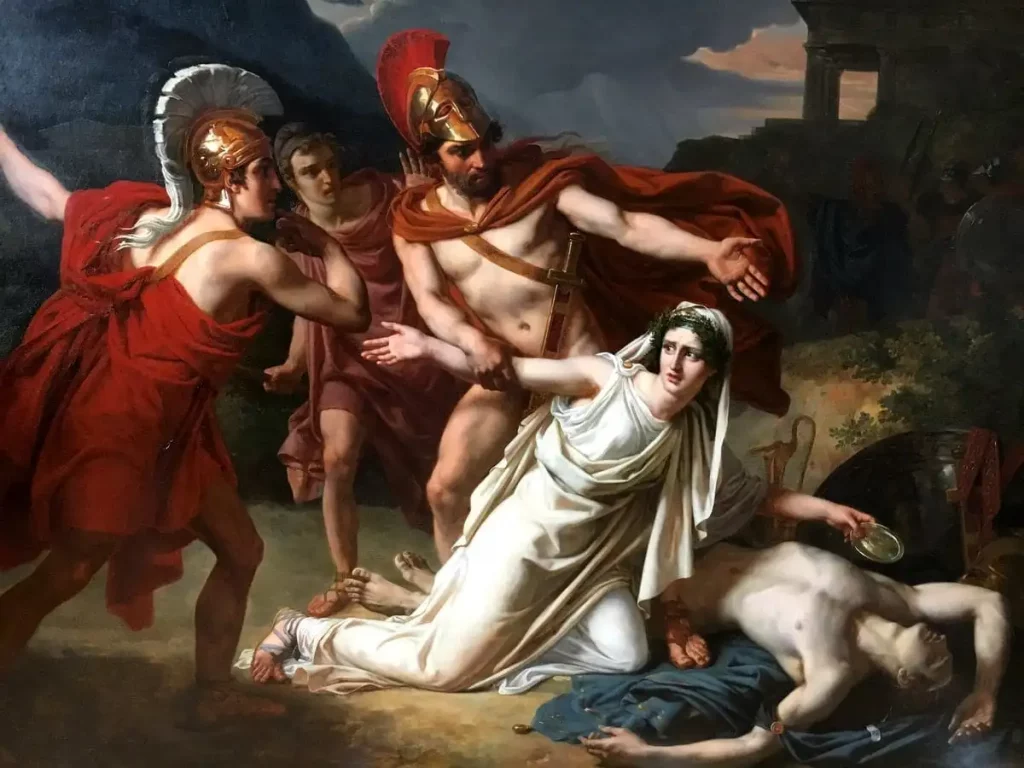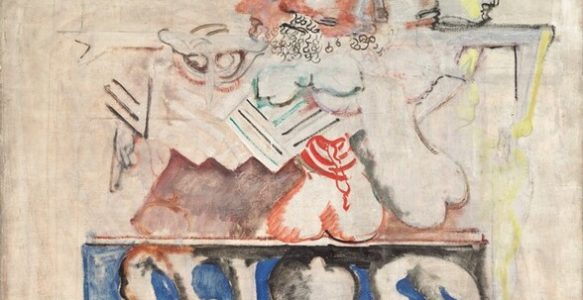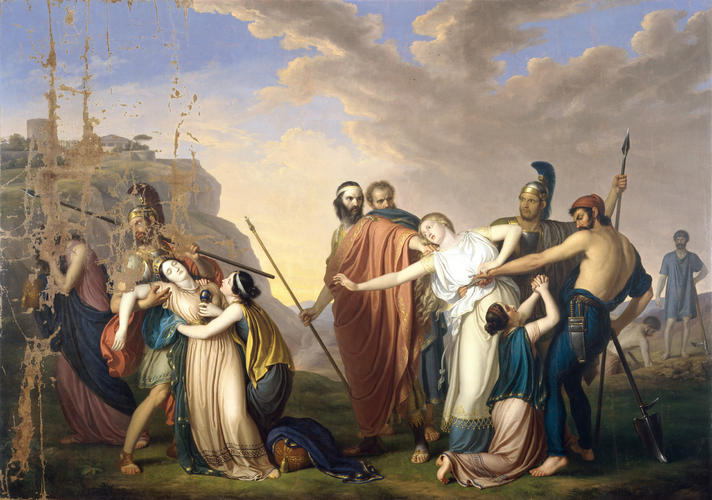by Katie Quill
In the famous Greek tragedy Antigone, Sophocles illustrates the character Creon’s progression toward insanity through his actions and emotions. Creon goes deranged due to various factors, the most significant being his self-isolation from his family and the dismissal of societal values. As Aristotle, a famous Greek philosopher, states, “he who is unable to live in society, or who has no need because he is sufficient for himself, must be either a beast or a god.” Creon, being “sufficient for himself,” becomes a beast.
Creon fails to behave rationally and morally because he is too far removed from society and those he loves. The combination of these two deficiencies leads to Creon’s mental degradation as he loses touch with realities, making him egocentric and unyielding. The family is a microcosm of society. In the patriarchal era in which the play takes place, the father figure in the family is expected to uphold a principled household. The ability to conduct a disciplined and orderly family is symbolic of exemplary leadership. Creon’s decisions throughout the play regarding family and state display his lack of wisdom and subsequent deficiencies in governance. In his illustration of Creon’s insanity and the devastating consequences, Sophocles presents the individual’s need to interact with society and the dangers of rigidity.
Creon makes the grave mistake of ignoring his subjects’ and family’s thoughts and values, leading to dire consequences. When Creon first begins his rule of Thebes and speaks to the Choragos about his plans and values, he makes it clear that his priority is the state and that his family has no influence on his decree: “the man who sets private friendship above the public welfare– I have no use for him, either.” (Sophocles 197). Though one may argue that emotional attachment can cloud judgment and jeopardize a leader’s ability to rule justly, severing oneself from family is the first step in detaching from society, which is more fatal than familial influences in governance. Not only does Creon fail to maintain order in his own house, but he also rejects his family completely, symbolizing his simultaneous rejection of society.
Creon is proven insane when he rebuffs the pleading of his son, Haimon, who appeals to him using a combination of ethos, pathos, and logos. Haimon’s wisdom falls on deaf ears, showing that even those closest to Creon cannot influence his opinions and ordinances. From this inability to listen to others’ opinions stems Creon’s insanity. He loses sight of morality and rationality and becomes too obsessed with his delusion of wisdom and righteousness. At the end of his argument with Haimon, Creon says, “Bring the woman out! Let her die before his eyes! Here this instant with her bridegroom beside her!” (Sophocles 222). He knows that Antigone’s death is the thing that would hurt Haimon the most, and deciding that his son should witness the atrocity proves the impact that his inflexibility has on his morality. Because he deems himself to be the only one capable of being right, he is offended by the opinions of others when they contradict his own, as they provoke his insecurities. It is not until Creon’s family commits suicide in response to his insanity that Creon is able to see the flaws in his mindset and the devastating toll that it has on his family and society.

Sébastien Louis Guillaume Norblin de la Gourdaine, 19th century, Ecole Nationale Supérieure des Beaux-Arts, Paris
Through the portrayal of Creon’s mental decline and the consequences of his insanity, Sophocles demonstrates the necessity of balancing one’s individualism with societal standards. Today, with the importance of mental health coming to the forefront of societal concerns, Sophocles’ work stands the test of time in its wisdom regarding this subject.
Works Cited:
Sophocles. Antigone. Translated by Dudley Fitts and Robert Fitzgerald, Mariner Books, 1939, pp. 186-245.



